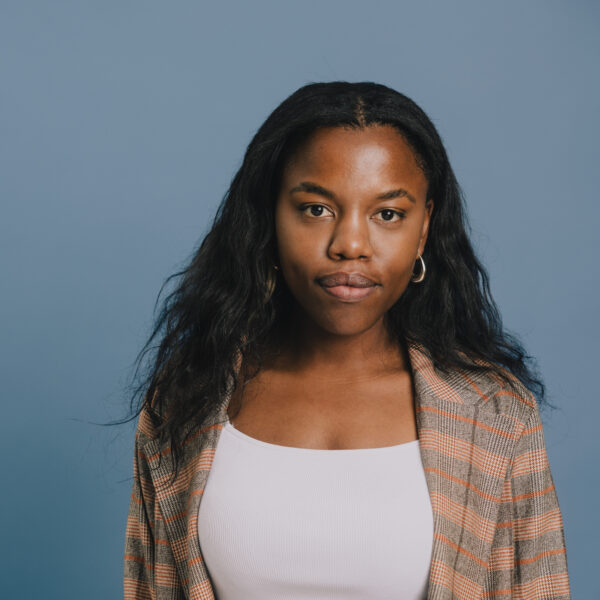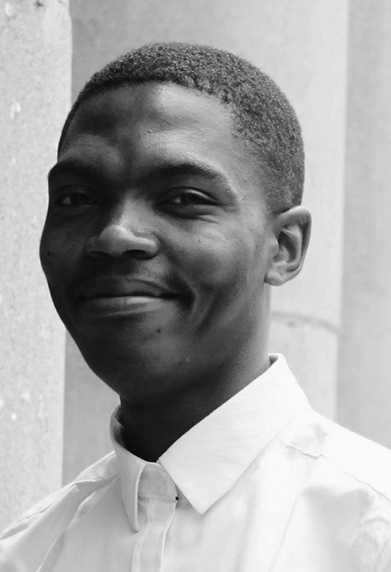Building Inclusive Civic Tech Communities
1st March 2022 by Nkosinathi Mcetywa
These women are helping change dominant narratives about tech and the tech industry in Africa
Equality, in its many forms, breeds a more confident, united, and productive society that benefits all who live in it. Societies working towards equality are seeing a more democratic dispensation allowing for greater opportunities to all segments of society, including women and other underrepresented groups that have been historically excluded. This drive for equality can be achieved through strategic and intentional means in the political and socio-economic spheres of governance.
Digital transformation has played an essential part in increasing levels of equality across the globe. This transformation has allowed for greater access for all members of society, including women and other underrepresented groups in the world. Access to technology albeit not being the answer for most issues has been instrumental in ensuring that historically excluded groups can better their lives through access to information, access to welfare services, and even access to economic opportunities.
In the 21st century, increasingly women are using technological tools to get access to economic opportunities as well as opportunities in technology. According to UNDP (2019), women in tech make up only 28% of professionals in the world and only 30% in Sub-Saharan Africa, and as such are seeing a significant increase in women representation in this sphere. Generally, gender parity has increased by 0.24 percentage points per year since 2006, according to the Global Gender Gap Report (2021). Change is happening at a slow pace but there remains hope for a tipping of the scales and more balanced representation in the field. Despite much progress in workplace equality around the world, there remains a big gap in the technology industry for women.
While many women are in the tech industry, the environment continues to be inconducive primarily because it is a male-dominated field and can be quite exclusionary. However, some of these women have managed to succeed in this industry despite numerous barriers in an industry that does not cater to them. Some of these women have not only succeeded but have taken it upon themselves to do meaningful work that speaks to the needs of other women interested in the world of tech. Women like Baratang Miya, Tina James, Niousha Roshani, and Zine Nkukwana are but a few women working in technology who are working to balance the scales and use their influence, and resources to do good in the world.
Speaking on the Civic Tech in Africa podcast’s Women in Tech series, these women spoke proudly about the progress they were helping to make in the field of tech and were quite open in sharing their own experiences as women in technology.
Although tech is still a relatively underrepresented field for women around the world, more so in Africa, there have been women who have been working at the intersection of inclusion for women in technology for a long time now. Thirteen years ago, Tina James had already been working in digital inclusion when she realised that she had not been making the difference that she had envisioned she would be making in the space. She co-founded FemTech so she could create meaningful change through women empowerment, entrepreneurial development, skill-sharing, and training. Today, James’ groundbreaking work with FemTech ensures that women aren’t just part of the digital age; they are also able to use digital tools as well as ensure that they are self-reliant, confident leaders and entrepreneurs. She expresses great satisfaction with being able to make meaningful change in the lives of other women:
I think it’s the human side of it, seeing women develop from not being confident as entrepreneurs, or not even sure that they are entrepreneurs and seeing them emerge on the other side, making a difference. And I think that at the end of the day, isn’t that a great thing to achieve, when people feel they’re making a difference, and actually are in their environments, no matter what they tackle?
Zine Nkukwana believes that women in tech need to support each other. She believes that women have a lot to learn from each other regardless of how much experience they have in the tech industry.
We need to be able to uplift each other, through mentorships, through coaching, through developing, really talking to each other. And also even you being honest about what you know, and what you don’t know. And going out there and seeking advice
she says. True to her word, Nkukwana is one of the women in Sub-Saharan Africa helping other women in the tech industry through her ICT skills development programmes at Lindamahle Management Systems. Her work focuses on women and unemployed youth, a segment of the population she believes are marginalised.
Also working with youth on the African continent and the diaspora is Dr. Niousha Roshani; social scientist, serial entrepreneur, and researcher who makes the point that technology can help Africans on the continent and the diaspora to change dominant narratives about themselves. Dr. Roshani says her biggest dream is to “foster a global ecosystem of young people who are disrupting the status quo, for outsmarting the status quo and who are doing fantastic things and coming up with solutions to our most pressing issues”. Her work with Global Black Youth ensures that she is able to connect, amplify, and invest in the world’s most innovative and disruptive black youth. Dr Roshani is determined to change dominant narratives about where the best ideas and innovations come from:
It’s really important to undo a lot of the social conditioning that we have been subjected to a lot of lies and to find the real narrative, our own narrative, but also the narrative of, of the region of the people that we belong to…
Baratang Miya, also determined to change dominant narratives, entered the tech industry many years ago and has been determined to be an agent of change.When she started working in tech, she soon found out that the space was not created for her, and others like her, mothers and wives. Baratang found out that even among the women who were in the tech industry there were not many who had children or families of their own as she had.
It sometimes would be women who were giving glances when I bring my child to a space. It was a very tough space to be in as a mother and a woman
Today, Baratang is at the forefront of women’s inclusion in technology and is determined to make a difference wherever she can. She takes motivation from her own struggles from when she was a child in high school. The lack of resources, mentors, and opportunities left her technically impaired and ill-prepared for her first encounter with a computer at university. Through GirlHype she is actively working to close the digital divide and preparing young high school girls with the necessary skills they need to go into their professional lives.
From age nine to 18, [we teach] them how to code, [teach] them how to use computers in school so that when they get to universities, they know they can make better career choices
These women and many more in the tech space play an important role in narrowing the gap between men, women and other marginalised groups in the industry. Women in civic tech and other tech fields are not only narrowing the gender gap but are also ensuring that they can be catalysts for change through their social enterprises. These women are not only tipping the scales through their involvement in the tech industry, they are bringing others with them and changing the world as they go along.
Join us on the 17th of March 2022 as we partner with the International Civil Society Centre (ICSCentre) as we engage in a digital dialogue about ‘Building Inclusive Communities’. This session will unpack the role of digital innovations in facilitating inclusivity and diversity within civic tech. Register and be part of the discussion.






